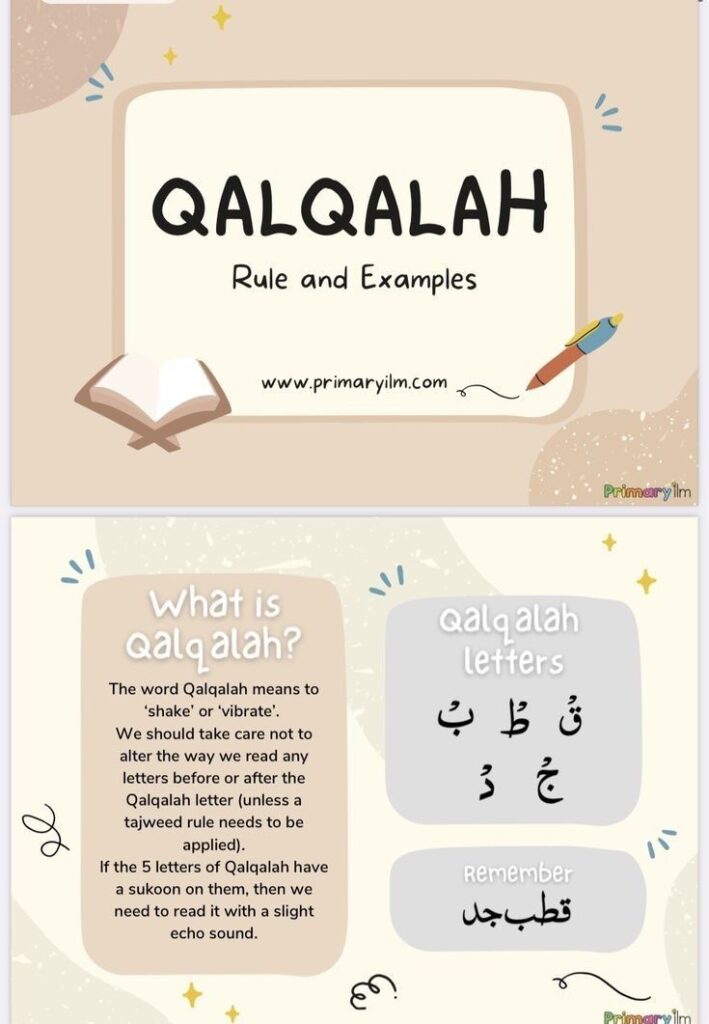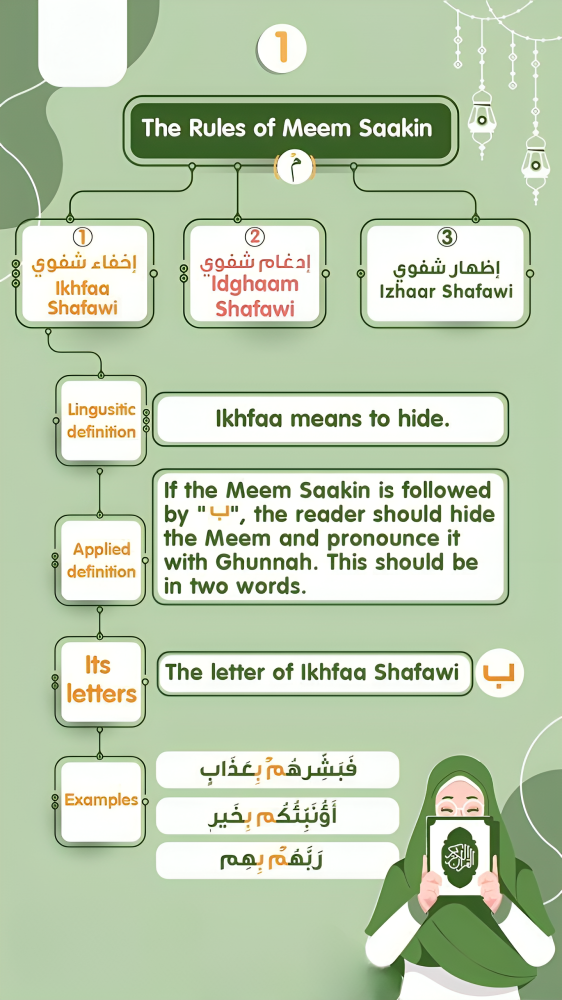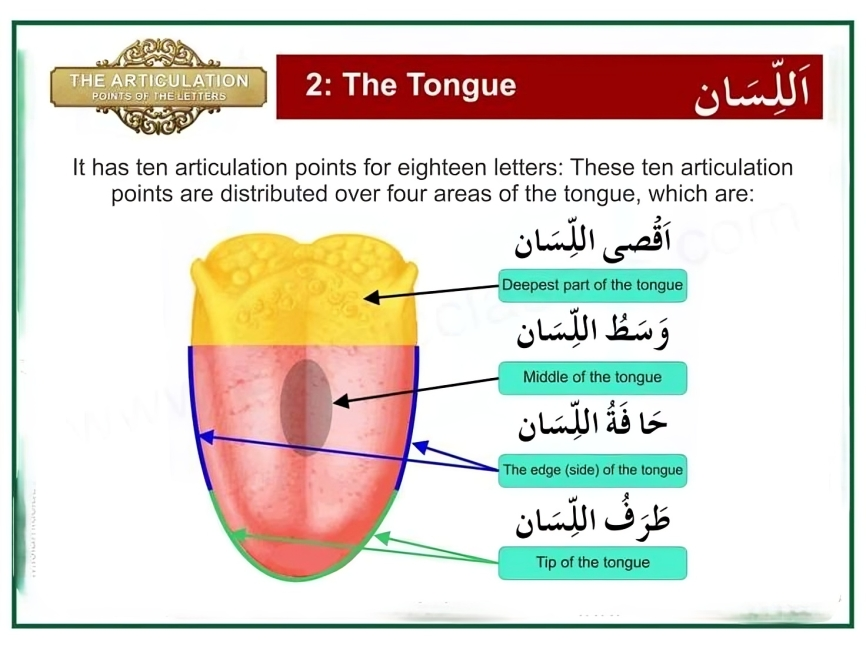Understanding Qalqalah in Tajweed: The Bouncing Letters
In the beautiful art of Quranic recitation, every letter has its unique characteristics and rules. Among these special rules is Qalqalah, a distinctive feature that adds to the melodious nature of Quranic recitation. Let’s explore this important aspect of Tajweed in detail.
What is Qalqalah?
Qalqalah (قلقلة) literally means “disturbance” or “echoing sound.” In Tajweed terminology, it refers to a bouncing sound that occurs with certain letters when they are either:
- Carrying a sukoon (vowelless)
- At the end of a word where the reader stops
The Letters of Qalqalah
The letters of Qalqalah are five, compiled in the memorable phrase: “قطب جد” (Qutbu Jad)
- ق (Qaaf)
- ط (Taa)
- ب (Baa)
- ج (Jeem)
- د (Daal)
Types of Qalqalah
1. Qalqalah Sughra (Minor Qalqalah)
- Occurs when a Qalqalah letter has a sukoon in the middle of a word
- Examples:
- يَجْعَلُ (Yaj’alu)
- يَقْطَعُ (Yaq’ta’u)
2. Qalqalah Kubra (Major Qalqalah)
- Occurs when a Qalqalah letter appears at the end of a word and the reader stops on it
- The bouncing sound is more pronounced than in Sughra
- Examples:
- الْفَلَق (Al-Falaq)
- أَحَد (Ahad)
How to Pronounce Qalqalah
To properly execute Qalqalah:
- Press the letter’s point of articulation firmly
- Create a slight bouncing sound
- For Kubra, make the bounce more pronounced
- Ensure the sound doesn’t create an additional vowel
Common Mistakes to Avoid
- Overdoing the Bounce
- The bounce should be subtle, not exaggerated
- Avoid creating what sounds like an additional syllable
- Neglecting Qalqalah
- Some readers forget to apply Qalqalah, especially in fast recitation
- Each Qalqalah letter must receive its right, regardless of speed
- Inconsistent Application
- Apply Qalqalah consistently throughout your recitation
- Don’t emphasize it in some places while neglecting it in others
Practical Examples from the Quran
- Surah Al-Ikhlas:
- قُلْ (Qul) – Qalqalah Sughra on ل
- أَحَد (Ahad) – Qalqalah Kubra on د when stopping
- Surah Al-Falaq:
- وَقَبْ (Waqab) – Qalqalah Kubra on ب when stopping
Tips for Practice
- Start with individual words containing Qalqalah letters
- Practice both Sughra and Kubra separately
- Record yourself and compare with expert reciters
- Focus on consistency in strength of bounce
- Practice with slow recitation before increasing speed
Conclusion
Mastering Qalqalah is essential for proper Quranic recitation. Like any aspect of Tajweed, it requires consistent practice and attention to detail. Remember that learning under a qualified teacher is the best way to perfect your Qalqalah and overall recitation.
May Allah accept our efforts in learning and implementing the rules of His Book.
This article is part of our Tajweed series. For more articles on Quranic recitation and Tajweed rules, explore our other resources on Baytul Quran.





